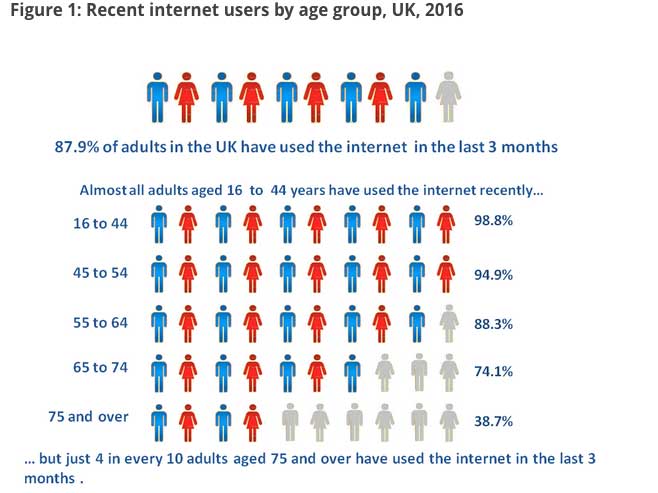How Can Churches Reach This Generation?
As a student in the 1980's I still remember the excitement surrounding Billy Graham's mission at Ashton Gate in Bristol. I was one of the Christians given training to talk and pray with people responding and I cannot tell you how my heart sang as every night people streamed down to the pitch to give their lives to Jesus. Thirty years later and I'm asking myself: "What's happened? Why can't Christians engage with this generation as we did back then?".
The big change that has happened is undeniably the advent of the internet. What is frightening is that the average UK adult spends almost 25 hours a week on the internet and in a recent survey Ofcom found that 42% of adults go online, or check apps, more that 10 times a day. And yet when I think of my own internet usage (outside office hours) it amounts to well over three hours a day (even though I work in the web business) because it is my primary source of information.
So what relevance has this got to church and proclaiming the gospel?
The internet is now the primary means by which this generation accesses information.

The Office for National Statistics report on Households and Individual's Internet Access in 2016 identified that:
- 82% of adults used the internet daily or almost every day,
- 71% of adults used mobiles or smartphones to access the internet,
- the primary use of the internet was to send or receive emails (79% of adults),
- 76% of people turn to the web to find answers to their questions, and
- 63% of adults engage in social networking daily.
With the internet being the main way that the population source information, and regularly engage with others, there is a real possibility of using the web to reach this nation with the Gospel. However, it does seem that for many churches they are not taking advantage of this means of communication.
What can a church do to communicate their vision online?
1) Have a website that is mobile friendly and is well designed.
A recent survey by Adobe found that "content must be well-designed and easy to consume or they risk losing their audience", with 73% of adults wanting content to look good on all devices. A church website must therefore not only look good, but be mobile-friendly. If your site is not mobile-friendly then you will find that your website won't rank as well as others in the search engine results on smartphones and tablets.
2) Make sure that your website can be found on the internet.
It is essential that your website is found by Google so that they can present your website to users who are looking for the type of information that you have. To do this you need to give Google high-quality title and meta tags for your website. These should be able to be added to your website, and are generally known as search engine optimisation tags. You might have the best website in the world, but if it can't be found on Google then you cannot get your message across.
3) Engage on some form of social media.
This can be daunting as how do you choose from Facebook, Twitter, and Instagram? We would recommend that if you do not have the resources then just choose one. Facebook is a great place to start as it you can use it to publish events, talk about yours church's vision, and add photos.
Back in 1984 Billy Graham had a heart to see the UK reached for Christ through Mission England. It is interesting that Billy Graham's Evangelistic Association is now actively promoting Internet Evangelism by working with Jesus.net, a network of organisations and ministries who are engaged in evangelism and discipleship on the internet. The message is the same, but the means of communication has changed.
When the printing press was invented it must have been a frightening time for the church. However, it was also the perfect opportunity for the Gospel to reach many people. The internet is now today's printing press and at the Church Pages Initiative we want every church to be able to communicate online. It is our heart to see lives transformed through the local church and we are here to help facilitate this process.
Church Pages is resourced by our own successful software business. We asked ourselves "What can we do to reach this generation?", and looking at the bible we saw the priniciple of gleaning and wanted to share what we have with those in need. Our desire is that churches who realise the potential that the internet offers will welcome this Initiative and take advantage of what is being lain at their feet.

